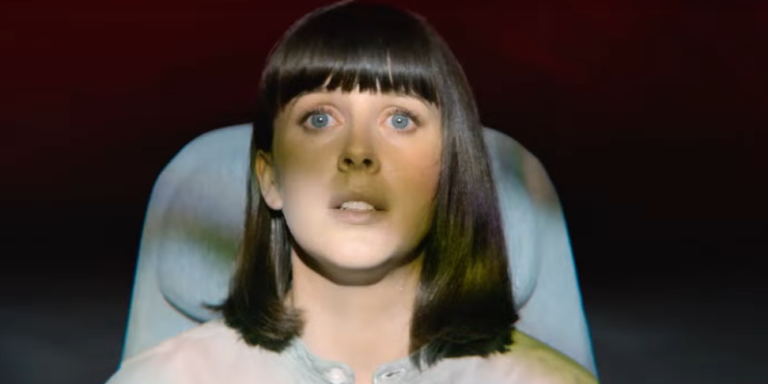This particular blog post isn’t about a diagnosis, really. It’s about a symptom called derealization that I have sometimes as part of Major Depressive Disorder. I feel like a lot of people experience this from time to time and don’t know that it has a name or any way to self-help when it happens. So here we go.
What is derealization?
Derealization is a cognitive experience of feeling like the world isn’t real, that you’re disconnected from it, that sensations and perceptions are “off,” and/or that time is passing in an abnormal way. It literally just means that you have stopped interpreting reality as reality, and it doesn’t feel like reality anymore. The way that this usually presents itself for me is the feeling that my eyes are like a movie screen and I’m just inside my own head watching everything. Yes, like that episode of Black Mirror.

On top of feeling like I’m watching a movie instead of being alive in my body, the world around me feels “off.” Things seem flatter, like I’m almost in 2 dimensions instead of 3. It feels like if I were to reach out and grab something, I wouldn’t be able to. I can, of course, but it feels like the world around me isn’t real at all. It’s hard to describe, but if you’ve experienced it, you probably know what I’m talking about.
Dealing with derealization
Derealization doesn’t happen to me regularly. It only happens when I’m very depressed or anxious, so the biggest thing that I can do to cope with it is to address the depression and anxiety. In the moment, I usually either wait for it to pass, engage in some sort of sensory activity like tapping my fingers, touching things, or eating, and talk to other people. When I first start talking or touching something, it feels like I’m not doing it. Like I’m just observing it happen. But after a few minutes, my brain will usually decide that reality is real and I can move on.
Treatment and recovery
If derealization or depersonalization (feeling like you are outside of your body) are really severe and persistent, people can be diagnosed with derealization-depersonalization disorder. When it’s severe, therapy and mindfulness training can be helpful in learning how to reconnect with the world and cope with symptoms on a day-to-day basis. It can also be helpful to tell a friend or peer about your experiences and talk to them when it’s happening. There aren’t any medications that can help with it right now, it’s all about mindfulness, cognitive strategies, and making connections with the world.
